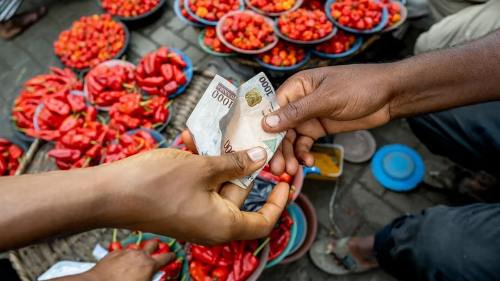Nigeria’s inflation hits 28.9% amid rising food prices

TLDR
- Nigeria's annual inflation rate increased to 28.92% in December, with food prices being a significant contributor.
- Food inflation rose to 33.93% last month, higher than November's 32.84%.
- Inflation in December 2023 was 7.58% higher compared to December 2022, indicating a substantial increase in average price levels.
Nigeria's annual inflation climbed to 28.92% in December, up from 28.20% in November, with food prices being a significant contributor, according to the country's Bureau of Statistics on Monday. Food inflation increased to 33.93% last month, rising from 32.84% in November.
The statistics office reported that the headline inflation rate for December 2023 surged by 0.72% compared to the rate in November 2023. On a year-on-year basis, the headline inflation rate was 7.58% higher compared to the rate recorded in December 2022, which stood at 21.34%.
This indicates that the average price level experienced a more substantial increase in December compared to the previous month, November. This escalation represents the eleventh consecutive rise in the inflation rate since February 2023.
Key Takeaways
Since 2016, Nigeria, the largest economy in Africa, has grappled with persistent double-digit inflation, undermining incomes and savings while exacerbating a cost-of-living crisis. The consumer price index continued its upward trajectory for the 12th consecutive month in December. During this period, food prices in Nigeria experienced a steady increase, exacerbated by government policies, including the removal of subsidies on petrol. Responding to the escalating situation, President Bola Tinubu declared a State of Emergency on food insecurity in July 2023, aiming to address the surge in food prices. Additionally, he directed that all matters related to the availability and affordability of food and water, considered essential for livelihood, be brought under the jurisdiction of the National Security Council.

Next Frontier
Stay up to date on major news and events in African markets. Delivered weekly.
Pulse54
UDeep-dives into what’s old and new in Africa’s investment landscape. Delivered twice monthly.
Events
Sign up to stay informed about our regular webinars, product launches, and exhibitions.




